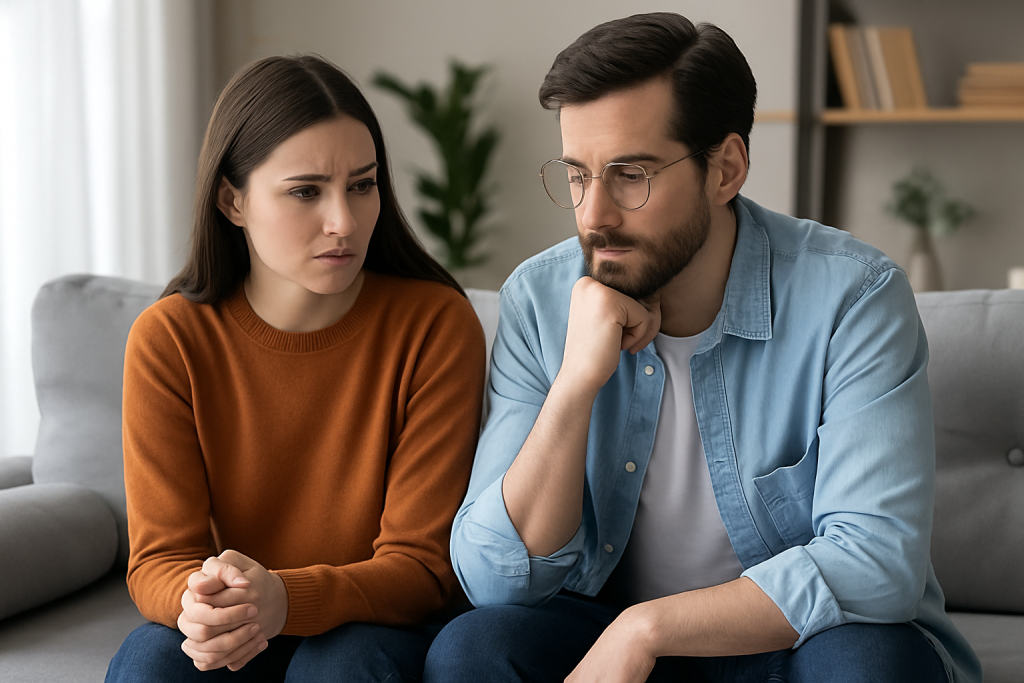Couples therapy offers a structured path to repair emotional distance, miscommunication, and unresolved conflict between two people who still want to make it work.
A healthy relationship requires two people who are ready to listen when it matters most. Not every couple argues. Sometimes, the silence says more.
When emotional distance replaces conversation, when routine takes over intimacy, and when understanding fades into assumption — it is time to pause and re-evaluate. We have seen these patterns before, and we know how to shift them.
Therapy does not assign blame. It restores connection. With the right guidance, couples rediscover how to work together — not against each other.
Read more Couples Counseling vs Couples Coaching: What’s the Difference?
The Role of Couples Therapy: What It Really Offers
Every couple develops a rhythm. Sometimes that rhythm becomes rigid — shaped more by survival than connection.
Relationship counseling gives couples the tools to reset that rhythm intentionally. It focuses on clear communication, emotional safety, and conflict resolution. We help partners understand how their words, reactions, and behaviors either reinforce disconnection or support closeness.
When issues stay unresolved, they begin to surface in subtle ways. Delayed replies. Defensiveness. The need to “win” during arguments. Therapy uncovers these patterns and provides new ways to respond — ways rooted in empathy, not assumption.
For couples managing physical distance, demanding schedules, or parenting responsibilities, online couples therapy offers a flexible alternative. Sessions conducted from home encourage openness in a familiar space, while still maintaining clinical structure and professional support.
Marriage Support: Before, During and Beyond
Marriage therapy sessions give couples the structure to reconnect when life begins to pull them apart. We work with partners facing everything from financial pressure and intimacy challenges to disagreements about parenting or extended family. The goal is not to revisit every fight — it is to understand why the same fight keeps happening.
Therapy builds the emotional tools that daily life often erodes. It slows things down, creates space for reflection, and allows both partners to speak without interruption or defense. This process strengthens trust — even when trust has been tested.
We also believe in preparing for challenges before they start. That is why pre-marriage counseling services remain one of the most effective tools for long-term relationship health. These sessions explore expectations, values, roles, and boundaries. Couples who engage early do not just prevent conflict — they grow closer through shared clarity.
Choosing the Right Therapist: What to Look For
The success of couples therapy depends heavily on the professional guiding it.
A skilled therapist does more than listen. They manage emotional energy, introduce structure, and ask the right questions at the right time. We encourage every couple to seek a licensed couples therapist near me who is trained specifically in relationship dynamics — not just general mental health.
It is important to verify qualifications, therapeutic approaches, and experience with couples. Compatibility matters too. Both partners should feel safe, respected, and equally supported during sessions.
Many couples today choose online couples therapy platforms to access licensed professionals quickly and conveniently. These platforms simplify the search process and often include video introductions, bios, and scheduling options. The result is a more informed choice — without the delays or uncertainty of traditional referrals.
Conclusion
Every relationship reaches a crossroads. Some arrive quietly — a missed conversation, a growing distance, a feeling of being misunderstood.
Couples therapy offers a structured way through. It does not fix people. It helps them understand one another again.
We have worked with couples at every stage: new relationships, long-term marriages, and even those on the edge of separation. Through relationship counseling, we have seen partners rebuild trust, rediscover patience, and recommit to shared goals. The process is not easy — but it is always worth it.
Those who prefer flexibility often begin with online couples therapy. Platforms designed for digital sessions allow couples to meet with licensed therapists consistently, even across long distances. This consistent support builds accountability and keeps communication open — without added logistical stress.
From marriage therapy sessions to pre-marriage counseling services, the path forward is not guesswork. It is a decision. One that brings healing, connection, and renewed strength to the relationship.
Read more Couples Therapy vs Individual Therapy: Which One Should You Choose?
FAQs
What is the difference between couples therapy and relationship counseling?
Couples therapy often involves deeper therapeutic work and long-standing issues, while relationship counseling tends to address communication, decision-making, and conflict resolution at earlier stages. Both approaches are valuable — the choice depends on the nature and depth of your relationship concerns.
Are online therapy sessions as effective as in-person ones?
Yes. Many couples find that online couples therapy provides the same emotional depth and progress as traditional sessions. The convenience of attending from home, combined with consistent scheduling, makes therapy more accessible — especially for busy or long-distance couples.
How do we find the right therapist for our relationship?
Start by searching for a licensed couples therapist near me using trusted directories or verified therapy networks. Look for professionals with specialized experience in couples work. If location or schedules are a barrier, explore trusted online couples therapy platforms that provide immediate access to vetted professionals.
What are pre-marriage counseling services, and who are they for?
Pre-marriage counseling services are designed for engaged or seriously committed couples. These sessions focus on alignment — around finances, family, expectations, intimacy, and more. They strengthen the foundation before marriage begins, reducing future stress and misunderstandings.
What issues are commonly addressed in marriage therapy sessions?
Marriage therapy sessions often cover emotional disconnection, intimacy issues, parenting disagreements, betrayal recovery, or long-term communication breakdowns. A good therapist helps both partners explore these challenges with honesty, neutrality, and a plan for resolution.
